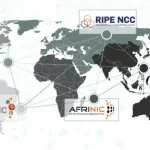- Microsoft has warned that Chinese cyber organisations, backed by North Korea, are likely targeting this year’s presidential and legislative elections in the US, South Korea, and India, using AI-generated content to support their positions.
- Tactics employed by China include posting fake audio clips that may be “generated by AI,” descriptions of former presidential candidates endorsing rivals, and AI-generated memes.
According to Microsoft’s Threat Intelligence team, the Chinese government is expected to step up sophisticated AI-generated disinformation campaigns to influence several high-profile elections in 2024.
China’s strategy
Microsoft issued a warning, stating that this year’s presidential and parliamentary elections in nations including the US, South Korea, and India “are likely to target” state-sponsored Chinese cyber groups with assistance from North Korean players. In research published on Friday, Microsoft issued a warning, stating that “China’s growing attempts to augment memes, video, and audio will continue and are likely to prove effective. However, the impact of such content on audiences remains relatively small.”
China’s recent’manoeuvres’ using AI-synthesised disinformation during Taiwan’s January presidential election foreshadowed this emerging threat,” Microsoft warned in a report released on Friday. According to Microsoft’s assessment, a pro-Beijing group called Storm 1376 or Spam Fake Dragon made its first attempt to influence a foreign vote using AI-created content.
Tactics employed by Chinese-backed operatives included posting fake audio clips, possibly “generated by AI,” depicting former presidential candidates endorsing rivals, and AI-generated memes making baseless allegations of corruption against eventual winning pro-sovereignty candidate William Lai.
Also read:Microsoft says lax security led to China’s cyber raid
Also read:ICANN announces details for Asia Pacific Domain Name System Forum 2024
The influence generated by AI
Microsoft’s report says, “As people travel to India, South Korea, and the U.S. to vote, we may see Chinese cyber and influence actors, and to some extent, North Korean cyber actors, opposing these elections.” Chinese organisations have sought to portray divisive issues and voter groups in the US through social media campaigns, which may be “gathering intelligence and identifying key voter demographics” ahead of the US presidential election.
In pointing out this risk, Microsoft acknowledged that AI-enabled disinformation has had limited success in shaping global public opinion to date. But Microsoft warned that the Chinese government’s increasing investment in AI and the growing sophistication of the technology posed









